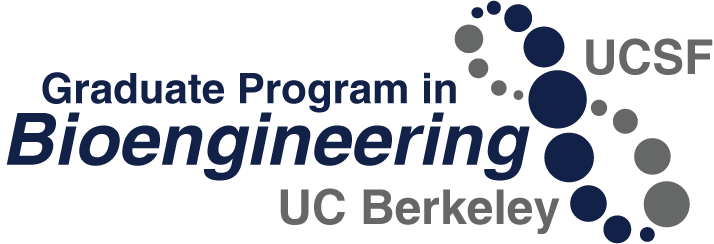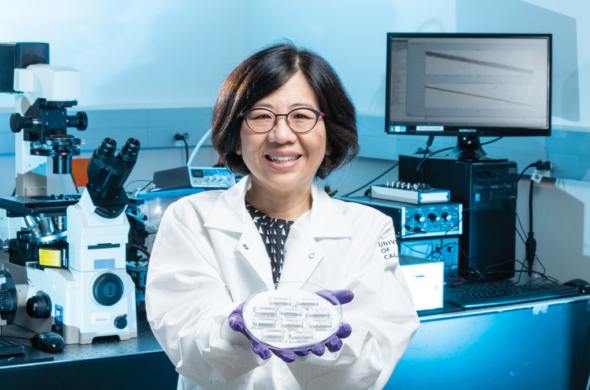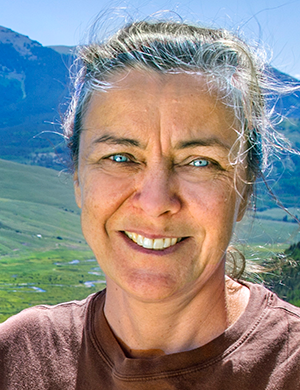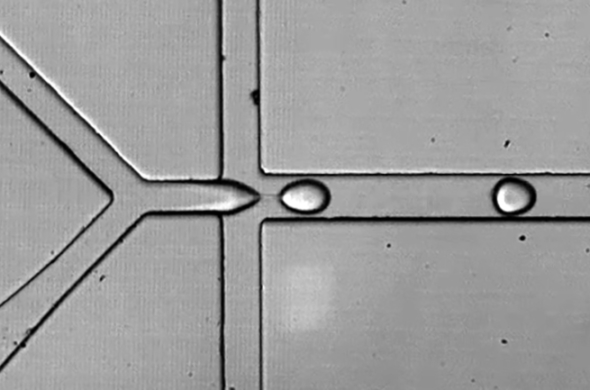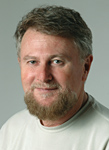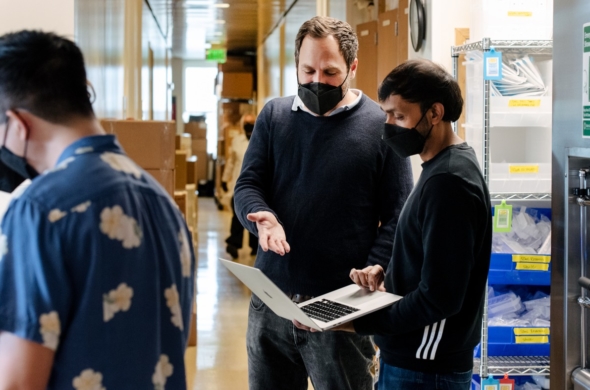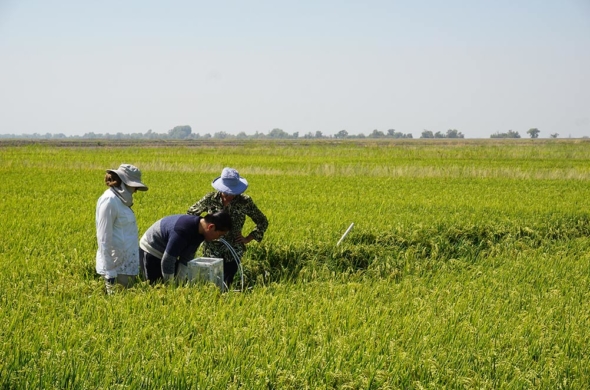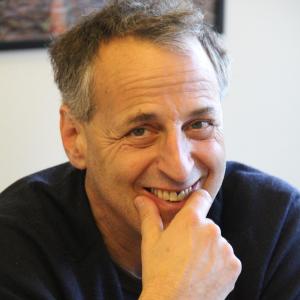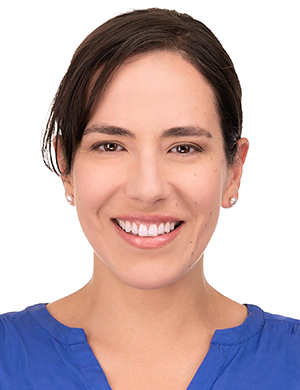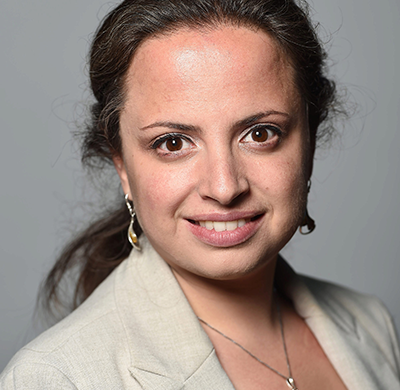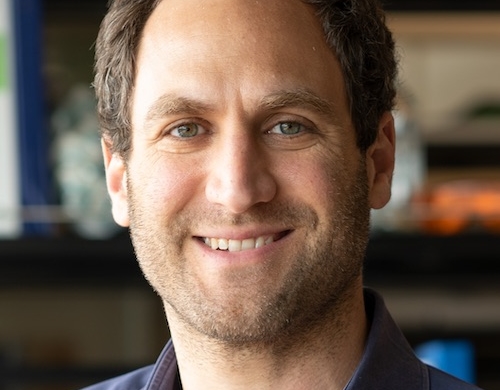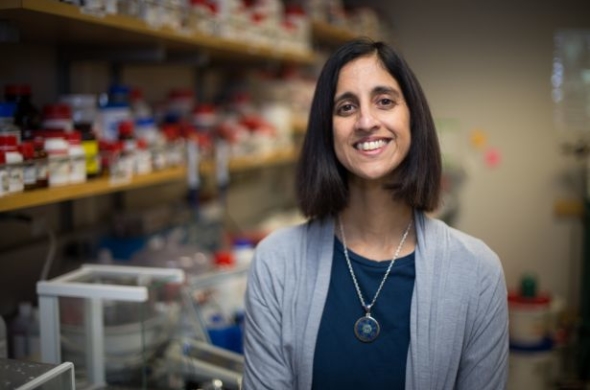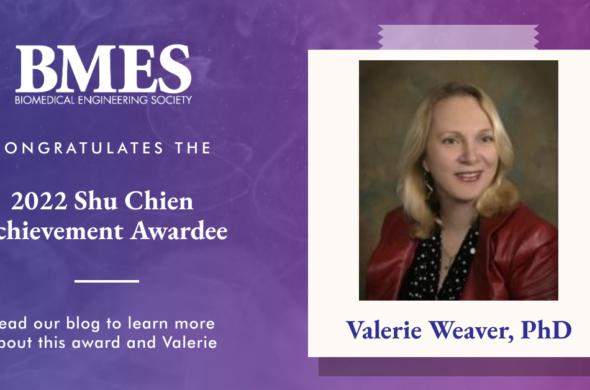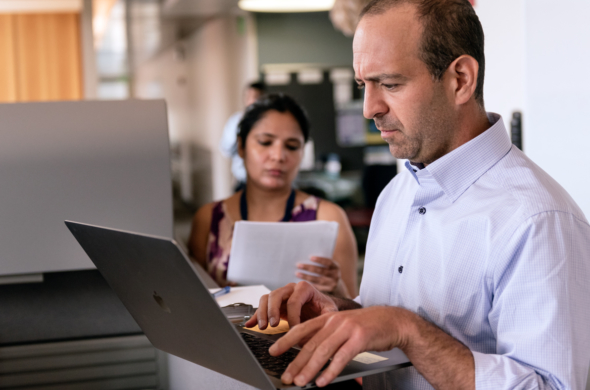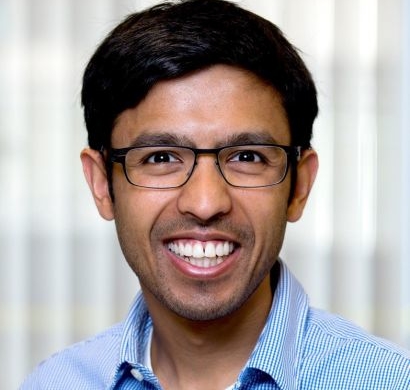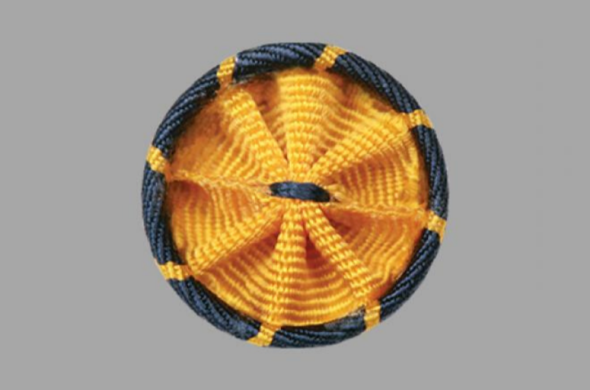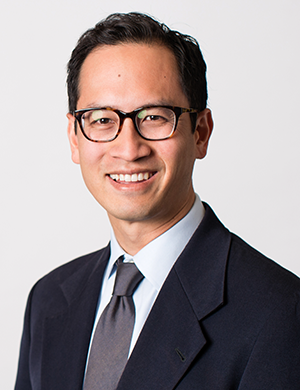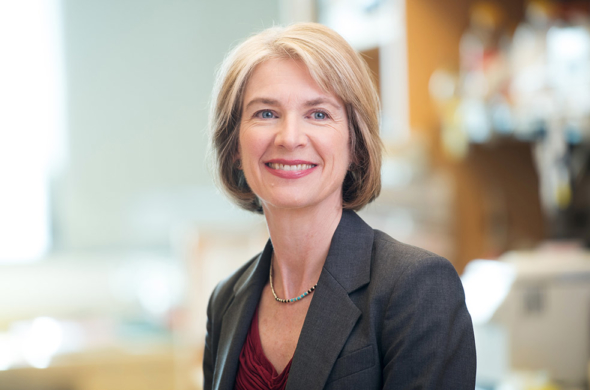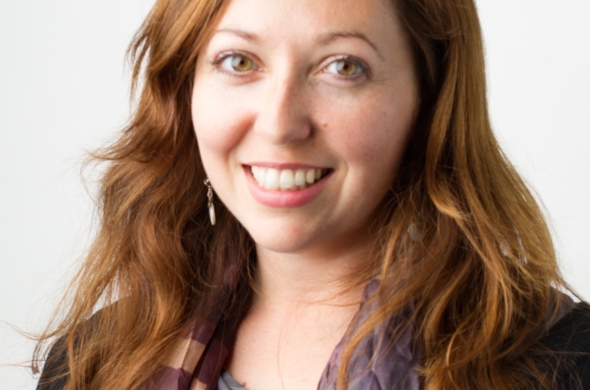A microfluidic device developed by Berkeley professors Lydia Sohn and Michael Lustig may help solve some of the most complex mysteries in cell biology.
These ‘aliens’ assimilate DNA from other microbes
Prof Jill Banfield of UC Berkeley is studying Borgs, microbes that assimilate pieces of the microbes they infect in a way that looks similar to the workings of CRISPR. She suspects there may be applications of Borgs that are just as revolutionary.
Single-cell studies offer new view of how HIV infections persist
Professors Adam Abate and Iain Clark were able to analyze single cells harboring latent HIV using a technique that isolates single, infected cells as tiny amounts of blood move through their microfluidic devices. Their work was featured in Science news.
Foundational Rubinsky paper honored as 2nd most cited in ABME history
An article published by Professor Emeritus Boris Rubinsky in 2005 was the first to suggest irreversible electroporation as a potential method for minimally invasive surgical tissue ablation. Now, as the second most cited paper in ABME history, irreversible electroporation has been implemented in the clinic as an effective approach to eradicating unresectable tumors in over 50 clinical trials and has helped more than 5500 cancer patients.
Scientists Map Networks of Disease-Associated Immune Genes
Using new technologies to study thousands of genes simultaneously within immune cells, researchers led by bioengineering graduate group faculty member Alex Marson have created the most detailed map yet of how complex networks of genes function together. The new insights into how these genes relate to each other shed light on both the basic drivers of immune cell function and on immune diseases.
Three faculty receive 2022 Bakar Fellows Spark Awards
Congratulations to Grace Gu, Phillip Messersmith and Wenjun Zhang, all faculty in the Bioengineering graduate program and 2022 recipients of the Bakar Fellows Spark Award. The Spark award is designed to accelerate UC Berkeley faculty-led research and produce tangible, positive societal impact through commercialization.
Supercharging Plants and Soils to Remove Carbon from the Atmosphere
A new research program at the Innovative Genomics Institute led by bioengineering graduate faculty Jill Banfield and Jennifer Doudna, supported by a $11 million commitment from the Chan Zuckerberg Initiative (CZI), seeks to use CRISPR genome editing to enhance the natural ability of plants and soil microbes to both capture and store carbon from the atmosphere.
Ivry elected to American Academy of Arts & Sciences
Richard Ivry, professor of psychology and member of the bioengineering graduate program, has been elected to the American Academy of Arts & Sciences (AAAS). Ivry is also head of The Cognition and Action Lab and a member of the Helen Wills Neuroscience Institute. He studies cognitive neuroscience, with a focus on how people plan and execute actions and movements, and neurological disorders such as ataxia.
Landry selected for inaugural Philomathia Prize
Assistant Professor Markita del Carpio Landry of the Department of Chemical and Biomolecular Engineering has been named the inaugural recipient of the Philomathia Prize. The prize recognizes demonstrated excellence and future potential of a UC Berkeley faculty member’s research. Landry’s Philomathia-funded project intends to image neuropeptide signaling with near-infrared microscopy, which would enable exploring the role of these newly visible neurochemical signals in autism spectrum disorders.
Sirota, Garmire, Lam elected to AIMBE Fellows
Congratulations to graduate group faculty member Marina Sirota, Associate Professor of Pediatrics at UCSF, and alumni Lana Garmire, Associate Professor at the University of Michigan, and Wilbur Lam, Professor at Georgia Tech. All were elected as 2022 members of the American Institute for Medical and Biological Engineering (AIMBE) College of Fellows.
Scientists Reveal “Rosetta Stone” of Immune Cell Function
A team of researchers led by Bioengineering graduate program faculty member Alex Marson has adapted a variation of the CRISPR system to test every gene in the genome and rapidly discover genes that can be “turned on” in human immune cells to enhance their functions. This new tool gives them a more thorough and rapid way to discover genes that play a role in immune cell biology than previously possible.
Desai named new Dean of Engineering at Brown
With pride and sadness we announce that Professor Tejal Desai has accepted an appointment as the next Dean of Engineering at Brown University. Desai is an alumna of our own PhD program, former longtime chair of the Graduate Program and the Department of Bioengineering and Therapeutic Sciences at UCSF, and inaugural director of UCSF’s Health Innovations Via Engineering (HIVE) initiative. Congratulations to both Tejal and Brown, who have a remarkable future ahead!
Thirteen faculty named Chan Zuckerberg Biohub Investigators
Congratulations to graduate program faculty members named to the second cohort of Chan Zuckerberg Biohub investigators: Ed Chang, Dan Fletcher, Zev Gartner, Amy Herr, Bo Huang, Tanja Kortemme, Liana Lareau, Hao Li, Aashish Manglik, Rada Savic, Seth Shipman, Aaron Streets, and Laura Waller. Congratulations also to BioE alumnus Stanley Qi, now a professor at Stanford.
Weaver wins BMES CMBE Shu Chien Achievement Award
Congratulations to Professor Valerie Weaver, named the 2022 BMES CMBE Shu Chien Achievement Awardee. This is the most prestigious honor bestowed by the BMES Cellular and Molecular Bioengineering Special Interest Group, recognizing an individual who has made exceptional contributions to the field, including groundbreaking scientific advances, the development of support programs, mentoring and training, and the advancement of diversity and inclusivity.
Microbes provide sustainable hydrocarbons for petrochemical industry
Researchers from Berkeley professor Michelle Chang’s lab have engineered microbes to make hydrocarbon chains that can be deoxygenated more easily and using less energy — paving the way for more sustainable microbial production of petrochemicals.
2021 Highly Cited Researchers
This week four Bioengineering Graduate Program faculty were named to Clarivate’s (Web of Science) 2021 Highly Cited Researchers list: Jill Banfield, Jennifer Doudna, Jay Keasling, and Valerie Weaver.
Desai wins Chancellor’s Award for Advancement of Women
Tejal Desai, graduate program faculty member and alumna, received the 2021 UCSF Chancellor’s Award for Advancement of Women this fall for demonstrating “outstanding commitment and service to the advancement of women beyond the scope of their job, area of research, or training.” Congratulations Tejal!
Weinberger receives NIH COVID Director’s Transformative Research Award
Congratulations to UCSF Professor Leor Weinberger, a 2021 winner of the NIH Director’s Transformative Research Award, in a special section of Emergency COVID-19 Awards Supported Through the CARES Act.
Manglik named 2021 Vallee Scholar
Aashish Manglik, Associate Professor of Pharmaceutical Chemistry and Anesthesia at UCSF, has been named a 2021 Vallee Scholar. The Vallee Scholar program provide unrestricted funding for early career researchers at a critical stage in their tenure-track careers.
Congratulations to six new AIMBE Fellows
Congratulations to graduate group faculty Tamara Alliston, Grace O’Connell, Laura Waller, and Duan Xu, and to BioE PhD alumnae Karen Cheung, now a professor at the University of British Columbia, and Amina Qutub, now a professor at the University of Texas, San Antonio! All are new members of the American Institute for Medical and Biological Engineering College of Fellows.
Kumar and Babbitt elected AAAS Fellows
Berkeley Bioengineering Professor Sanjay Kumar and UCSF Bioengineering & Therapeutic Sciences Professor Emeritus Patricia Babbitt have been elected to the 2020 class of Fellows of the American Association for the Advancement of Science. Kumar was recognized for his “distinguished contributions to the field of bioengineering, particularly the development of biomaterial and single-cell technologies to investigate mechanobiological signaling in health and disease,” and Babbitt for “distinguished contributions to the field of computational biology and bioinformatics particularly related to protein structure/function and applications to drug target identification and drug design.”
Prof Ed Chang elected to National Academy of Medicine
Congratulations to UCSF Professor Ed Chang, Jeanne Robertson Distinguished Professor and Joan and Sandy Weill Chair of the Department of Neurological Surgery, elected to the National Academy of Medicine.
Doudna wins Nobel Prize in Chemistry
Jennifer Doudna, Berkeley Professor of Chemistry and Molecular & Cell Biology and faculty member of the Berkeley-UCSF Graduate Program in Bioengineering, won the 2020 Nobel Prize in Chemistry, sharing it with colleague Emmanuelle Charpentier for the co-development of CRISPR-Cas9, a genome editing breakthrough that has revolutionized biomedicine!
Muller receives McKnight Technological Innovations in Neuroscience Award
UC Berkeley EECS Professor Rikky Muller, member of the graduate program, is one of three scholars to win 2020 McKnight Technological Innovations in Neuroscience Awards, recognizing projects with the ability to fundamentally change the way neuroscience research is conducted. Muller is designing and building a high-speed holographic projector that can project 3D light into the brain at neural speeds, many times faster than current projectors, and so manipulate thousands of optogenetically-controlled neurons with high precision.
